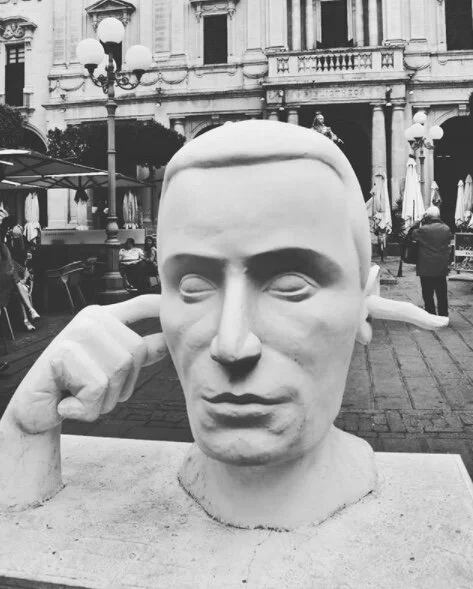Selected Press Coverage & Interviews
Interview: Life After Lockdown: Will Our Social Habits Be Changed Forever? (Euronews, 2020)
Interview: The Science Behind Why You Never Really Get Over Your First Love (The Telegraph, 2020)
Article: Will COVID-19 Make Families Stronger? (Essex Daily, 2020)
Article: How Do You Know When It’s Time To Breakup? (The Conversation, 2019)
Coverage: Does Your Partner Patronize You? (Psychology Today, 2019)
Selected Public Talks & Podcasts
Understanding our Place in the World Podcast: Love in the Time of Lockdown: Maintaining Relationships During a Global Pandemic. Healthy relationships - whether romantic or platonic - are vital to our overall well-being. Maintaining those relationships can be a challenge even in the best of times. Not surprising, it can be even more difficult to sustain these crucial connections during the current state of lockdowns and of social distancing. In this episode, we are happy to be joined by Dr Veronica Lamarche, a relationship scientist at the University of Essex. Veronica's research focuses on understanding how people regulate trust and dependence in their romantic relationships, and how feelings of uncertainty or vulnerability can influence relationship stability. Host: Dr Philip Cozzolino
Essex Explores Lecture Series: Love in the time of COVID: The importance of our relationships in uncertain times. The COVID-19 pandemic and subsequent lockdown initiatives have had a profound impact on daily-life. For many, their romantic relationships have been at the centre of these changes. Amidst this tremendous disruption, partners continue to expect love, care and responsiveness from one another, perhaps even more so than usual. What is it about romantic relationships that leads people to expect so much from one another, even amidst periods of uncertainty? And what can we do to maximise the benefits we get from our close relationships? Dr Veronica Lamarche from the Department of Psychology will discuss how our relationships can either be an amplifier for, or a salve against the feelings of uncertainty and vulnerability many are experiencing at the moment. This talk will draw explore the importance of relationships, how we find safety in the arms of our loved ones, and how a world turned upside down through can shift the way some people feel about their close relationships – for better or for worse.
BabyBrains WOW Live Series: Love in the Time of COVID: How to nurture your romantic relationship in the midst of it all. We are moms and dads, but we are also couples living at the time of the Covid. The family balance has changed from day to day: some couples started sharing their spaces 24 hours a day, others have been separated and live in the uncertainty of when they will be able to reunite. How can relationships last and thrive in time of adversity?
DSMNTL IDEAS Speaker Series: Relationships (& Breakups): Dismantled. Why do humans crave connection? Why are risk and reward such important factors? What makes one person a disaster for us and another 'perfect'? Join social psychologist & 'Relationship Scientist' Dr Veronica Lamarche to dismantle common ideas around human nature, vulnerability, and our need for togetherness. When relationships work, they help us find meaning and purpose, and shape who we are. But what happens when they go wrong? The consequences can be psychologically, emotionally and physically devastating. What differentiates a "good" relationship from a "bad" one? How can people leverage these insights to achieve more satisfying relationships? Balancing the trade-offs between "good" and "bad", "risk" and "reward" in relationships are essential for maximising all that relationships can offer. Despite a general desire to connect, not everyone is willing or able to risk the vulnerability that most lasting relationships require. In this talk, Dr Veronica Lamarche, from the Department of Psychology at the University of Essex, will discuss the features that distinguish flourishing relationships from ones that are likely to flounder, the individual differences that make balancing risk in relationships easier for some and more challenging for others, and what happens when the uncertainty of it all becomes too much.
